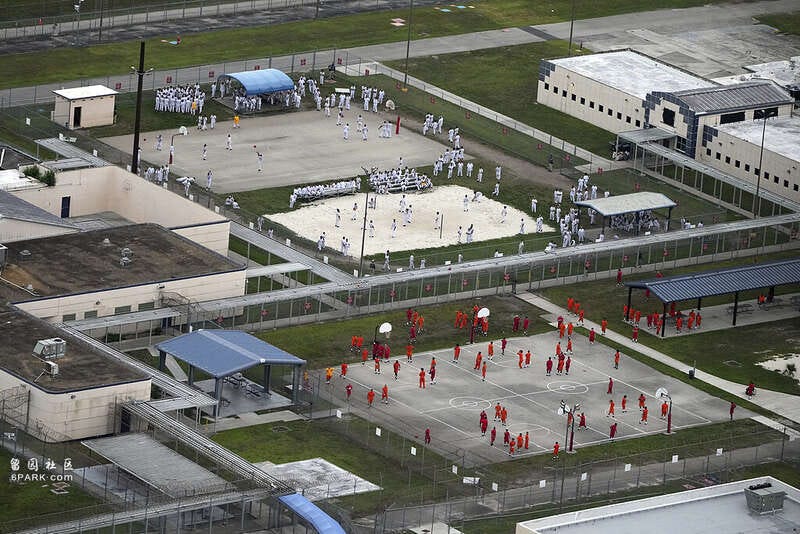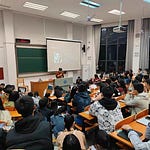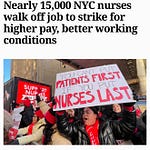When a man is forced to eat kneeling, with his hands cuffed behind his back, face bent to a tray like an animal, that's not just bad policy. That's a message. A punishment. A show of power.
And according to a joint investigation released July 21 by Human Rights Watch, the American Immigration Council, and Southern Shelter (SOS), this is happening right now inside the United States, under Donald Trump’s second term.
The findings, covered in The Guardian and Canada’s Globe and Mail, expose what’s going on inside three of Florida’s main immigration detention centers:
Krome North Service Processing Center (Miami)
Broward Transitional Center (BTC)
Federal Detention Center Miami (FDC)
The report is based on interviews with 11 current or recently released detainees, 7 family members, and multiple immigration lawyers.
What they reveal is not just individual cruelty. It’s a deliberate, institutional pattern.
The New Normal: Hunger, Humiliation, and Shackles
One man, 56-year-old Chauhan from the UK, recalled being shackled all day during a mass transfer. He and dozens of others received no breakfast or lunch. When food finally arrived at 7 p.m., they were still handcuffed.
“We had to put the trays on the chair and eat with our mouths, like dogs,” Chauhan said.
Pedro, another detainee from Guatemala, echoed the same experience:
“We were forced to eat like animals.”
At Krome North, detainees were made to sleep for 12 days on cold concrete floors, denied beds or blankets. At FDC, women had to use open toilets in front of male detainees. One room was so cramped and unsanitary, detainees were forced to sleep inches from the toilets.
A detainee named Brian was transferred between centers after the media reported on conditions at Krome. At FDC, he began coughing up blood. He begged for medical attention. Instead, he was thrown into a dirty examination room with blood on the bed and floor, no water, no food, and no medication.
“I felt like I was going to die,” Brian said. “I just wanted my medicine.”
This Isn’t Neglect. It’s Intentional.
What makes this even more disturbing is that these centers aren’t falling apart due to underfunding. According to Belkis Wille, deputy director of the Crisis and Conflict Division at Human Rights Watch and author of the report:
“These are relatively well-funded, professionally run facilities. This is not about lack of resources. It’s about organized cruelty — intentional denial of rights, food, and medicine.”
Staff reportedly punished detainees who sought mental health support by throwing them into solitary confinement. Medications were withheld without reason. Some detainees were taunted and strip-searched as intimidation.
The Bigger Picture: Punishment as Policy
Since Trump’s return to office in January 2025, immigration enforcement has escalated. According to the report, detention numbers have surged, and more immigrants are being jailed without criminal records or pending charges. It’s no longer about law. It’s about deterrence through fear.
Katie Blankenship, immigration lawyer and co-founder of SOS, warned:
“This is not just cruel. It’s deadly. These chaotic, rapid detentions are triggering a human rights crisis that could scar Florida and the country for years.”
And the damage isn’t limited to inside those walls. The goal is to terrorize entire communities, particularly in states like Florida that rely heavily on migrant labor.
The Official Denial
In response, a spokesperson from the Department of Homeland Security (DHS) dismissed all allegations, claiming all detainees receive proper meals, medical care, and communication access. ICE insists it is simply expanding capacity "to avoid overcrowding" as it deports "criminals and public safety threats."
But what do you call it when someone with no criminal record is locked in a room soaked with blood, denied food and medicine, and forced to eat off a chair like a dog?
That’s not public safety. That’s state violence in plain sight.
Final Thought: When Cruelty Becomes the Point
This isn’t about immigration anymore. It’s about the normalization of humiliation and punishment as political theater.
When you choose to make someone suffer, not because you have to, but because you can,
that’s not policy.
That’s fascism.
And if this is what they do to immigrants today,
what makes you think you’re safe tomorrow?










